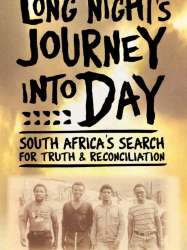Films with theme "Documentary films about racism", sorted by revenue

Seeds of Destiny (1946)
, 20minutesDirected by David Miller
Origin USA
Genres War, Documentary
Themes Films about children, Films about racism, Films about religion, Documentary films about racism, Documentary films about law, Documentary films about war, Documentary films about historical events, Documentaire sur une personnalité, Documentary films about religion, Political films, Films about Jews and Judaism, Documentary films about World War II
Actors Ralph Bellamy

Paper Clips (2004)
, 1h22Origin USA
Genres Documentary
Themes Films about education, Films about racism, Films about religion, Documentary films about racism, Documentary films about law, Documentary films about war, Documentary films about historical events, Documentary films about religion, Political films, Films about Jews and Judaism, Documentary films about World War II
Actors Tom Bosley
Paper Clips takes place in the rural, blue-collar Tennessee community of Whitwell, where a middle-school class attempts to gauge the magnitude of World War II's Holocaust by collecting paper clips, each of which represents a human life lost in the Nazis' slaughter of Jews. The idea came in 1998 from three of the teachers at the school and was completed in their eighth grade classrooms. The students ultimately succeeded in collecting over 25 million paperclips.

The Act of Killing (2012)
, 2h39Directed by Joshua Oppenheimer, Joshua Oppenheimer
Origin Danemark
Genres Documentary
Themes Films about films, Medical-themed films, Politique, Films about racism, Documentary films about racism, Documentary films about law, Documentary films about war, Documentary films about historical events, Documentary films about politics, Documentary films about health care, Films about psychiatry
The film focuses on the perpetrators of the Indonesian killings of 1965–66 in the present day; ostensibly towards the communist community where almost a million people were killed. When Suharto overthrew Sukarno, the President of Indonesia, following the failed coup of the 30 September Movement in 1965, the gangsters Anwar Congo and Adi Zulkadry in Medan (North Sumatra) were promoted from selling black market movie theatre tickets to leading the most powerful death squad in North Sumatra. They also extorted money from ethnic Chinese as the price for keeping their lives. Anwar is said to have personally killed 1,000 people.
 , 1h31
, 1h31Directed by Errol Morris
Origin USA
Genres Drama, Documentary
Themes Prison films, Films about racism, Films about religion, Documentary films about racism, Documentary films about law, Documentary films about war, Documentary films about historical events, Documentaire sur une personnalité, Documentary films about religion, Political films, Films about capital punishment, Films about Jews and Judaism, Documentary films about World War II, Documentary films about law enforcement, Négationnisme
Actors Errol Morris
Using film made at American prisons, Leuchter talked about his upbringing where his father was a corrections officer. Through his family associations, young Leuchter claimed he was able to witness an execution performed in an electric chair. Leuchter's impression of the event was that the electric chairs used by American prisons were unsafe and often ineffective. The event led him to design modifications to the device that were adopted by many American states.

Genres Documentary
Themes Films set in Africa, Films about music and musicians, Films about racism, Documentary films about racism, Documentary films about law, Documentary films about music and musicians, Documentaire sur une personnalité, Documentary films about politics, Musical films, Political films
Actors Walter Cronkite, Hugh Masekela, Miriam Makeba
In the film, South African musicians, playwrights, poets and activists recall the struggle against apartheid from the 1940s to the 1990s that stripped black citizens of South Africa of basic human rights, and the important role that music played in that struggle. The documentary uses a mixture of interviews, musical performances and historical film footage. Among the South Africans who take part are Miriam Makeba, Abdullah Ibrahim, Hugh Masekela, Vusi Mahlasela and others.
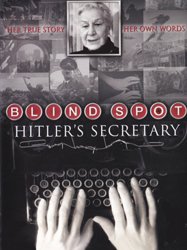 , 1h27
, 1h27Genres War, Documentary
Themes Films about racism, Films about religion, Documentary films about racism, Documentary films about law, Documentary films about war, Documentary films about historical events, Documentaire sur une personnalité, Documentary films about politics, Documentary films about religion, Political films, Films about Jews and Judaism, Documentary films about World War II

The Look of Silence (2014)
, 1h30Directed by Joshua Oppenheimer, Joshua Oppenheimer
Origin Danemark
Genres Documentary, Historical
Themes Films about racism, Documentary films about racism, Documentary films about law, Documentary films about war, Documentary films about historical events
Actors Joshua Oppenheimer
A middle-aged Indonesian man, whose brother was brutally murdered in the 1965 purge of "communists," confronts the men who carried out the killings. Out of concern for his safety, the man is not fully identified in the film and is credited only as "anonymous," as are many of the film's crew positions. Some shots consist of the man watching (what seems to be) extra footage from The Act of Killing, which includes video of the men who killed his brother. He visits some of the killers and their collaborators—including his uncle—under the pretense of an eye exam. Although none of the killers express any remorse, the daughter of one of them is clearly shaken when she hears, apparently for the first time, the details of the killings.

A Film Unfinished (2010)
, 1h29Origin Israel
Genres Documentary, Historical
Themes Films about films, Films about racism, Films about religion, Documentary films about business, Documentary films about the film industry, Documentary films about racism, Documentary films about law, Documentary films about war, Documentary films about historical events, Documentaire sur une personnalité, Documentary films about religion, Political films, Films about Jews and Judaism, Documentary films about World War II, Documentary films about films
Actors Alexander Beyer, Rüdiger Vogler
Ce sont des séries de bobines de films de 35 mm allemandes, anonymes, sans générique, portant la seule inscription : Das Ghetto, retrouvées dans les années 1950 qui sont à l'origine du film de Yahel Hersonski. Ces bobines constituent un « documentaire » allemand sur le ghetto de Varsovie durant la Seconde Guerre mondiale. Dans les années 1990, la découverte d'une bobine manquante viendra éclairer la propagande qui se cachait dans les premières images retrouvées et le véritable but des Allemands qui réalisèrent ces images.
 , 1h55
, 1h55Directed by Stanley Nelson Jr.
Origin USA
Genres Documentary
Themes Films about racism, Documentary films about racism, Documentary films about law
Quand, en 1966, à Oakland en Californie, Bobby Seale et Huey Newton fondent les Black Panthers, il s'agit pour eux de créer un groupe de défense des droits des Noirs, très discriminés dans cet Etat et en butte aux violences policières. Des militants de la première heure racontent les débuts du groupe, ses actions, ses coups d'éclat, comme l'irruption au parlement de Californie d'une trentaine de Black Panthers armés. Le courage et le culot dont ses membres font preuve assurent la renommée du parti et attirent de nombreux adhérents. Dès lors, la croissance est rapide. Au moment où le mouvement cherche à s'ancrer davantage dans la communauté noire, Edgar Hoover, le patron du FBI, prend le parti pour cible.
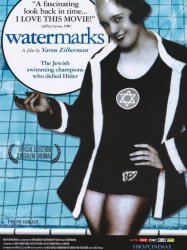
Watermarks (2004)
, 1h20Genres Documentary, Historical
Themes Films about racism, Films about religion, Sports films, Documentary films about sports, Documentary films about racism, Documentary films about law, Documentary films about historical events, Documentaire sur une personnalité, Documentary films about religion, Films about Jews and Judaism
L’Hakoah (« La force » en hébreu), fut fondé à Vienne en 1909, par réaction au célèbre paragraphe aryen qui interdisait aux clubs de sport autrichiens d’intégrer des athlètes juifs et devint l’un des plus grands clubs de sport de l’Europe de l’entre deux guerres. Dans les années 30, les plus grands succès de l’Hakoah furent remportés par ses nageuses, qui dominaient la compétition nationale en Autriche. Après l’Anschluss, les Nazis ont fait fermer le club. Les nageuses réussirent à fuir le pays avant que la guerre n’éclate, grâce à une opération de sauvetage organisée par les sportifs de l’Hakoah. 65 ans plus tard, 7 membres de l’équipe féminine de natation se retrouvent dans leur ancienne piscine à Vienne, un voyage qui évoque à la fois les souvenirs de leurs jeunes années, leur féminité affirmer et qui leur permet de renouer les liens de toute une vie.

No Place on Earth (2012)
, 1h23Origin USA
Genres War, Documentary
Themes Films about racism, Films about religion, Documentary films about racism, Documentary films about law, Documentary films about war, Documentary films about historical events, Documentaire sur une personnalité, Documentary films about religion, Political films, Films about Jews and Judaism, Documentary films about World War II
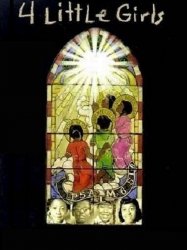
4 Little Girls (1997)
, 1h42Directed by Spike Lee
Origin USA
Genres Documentary, Historical
Themes Films about racism, Films about terrorism, Documentary films about racism, Documentary films about law, Documentary films about war, Documentary films about historical events, Documentaire sur une personnalité, Documentary films about politics, Documentary films about terrorism, Political films
Actors Ossie Davis, Spike Lee, Bill Cosby, Walter Cronkite
Film documentaire, 4 little girls revient sur l'attentat à la bombe dans une église afro-américaine qui, en 1963, tua quatre fillettes âgées de 11 à 14 ans.

The Missing Picture (2013)
, 1h32Directed by Rithy Panh
Origin France
Genres War, Documentary, Historical, Animation
Themes Politique, Films about racism, Documentary films about racism, Documentary films about law, Documentary films about war, Documentary films about historical events, Documentaire sur une personnalité, Political films, Autobiographical documentary films
Actors Randal Douc, Jean-Baptiste Phou, Rithy Panh
En utilisant des figurines d'argile et des images d'archive, Rithy Panh témoigne des atrocités commises par les Khmers rouges au Cambodge entre 1975 et 1979.
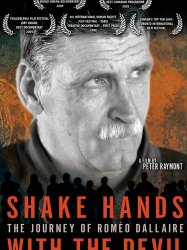 , 1h31
, 1h31Directed by Peter Raymont
Origin Canada
Genres Documentary
Themes Films set in Africa, Films about racism, Documentary films about racism, Documentary films about law, Documentary films about war, Documentary films about historical events, Documentaire sur une personnalité, Documentary films about politics, Political films
Between April and June 1994, an estimated 800,000 Rwandans were killed in 100 days. Most of the dead were Tutsis by the hands of the Hutus. The genocide began when Rwandan president Juvenal Habyarimana's plane was shot down above Kigali airport on April 6, 1994.
 Connection
Connection
